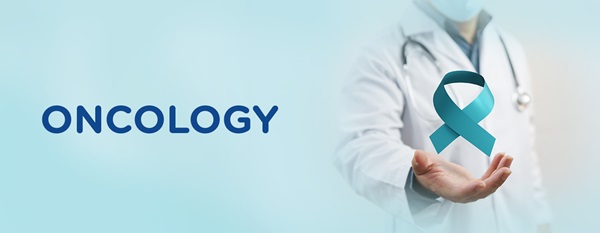
The Federal Government, in collaboration with City Cancer Challenge (C/Can), has launched the second cohort of its Leadership Programme to tackle gender disparities in healthcare, particularly in oncology.
Regional director for Africa and Europe at C/Can, Mrs. Sophie Bussmann-Kemdjo announced on Wednesday that the initiative, hosted in Abuja, aims to empower mid-career women to assume leadership roles and drive improvements in cancer care policies and practices.
Bussmann-Kemdjo stated that the programme directly responds to findings from The Lancet Commission on Gender, Sex, and Women, which emphasises the urgent need to address gender gaps in healthcare leadership.
“While women comprise over 70 per cent of the global healthcare workforce, they hold only 25 per cent of leadership positions, according to the World Health Organisation. This programme is a testament to our commitment to bridging this gap and creating an environment where women in oncology can thrive,” she said.
She added that through mentorship and tailored training, the programme helps women build the confidence and leadership skills necessary to drive change.
The leadership programme is supported by the American Society of Clinical Oncology (ASCO), which contributes to content development and considers cultural nuances during training.
“This cohort includes nine women from cities such as Nairobi, Kumasi, Arequipa, and Abuja. Participants will engage in a two-year program that combines virtual sessions, leadership role-play, and mentorship,” she explained.
Bussmann-Kemdjo highlighted that the programme’s ripple effect is expected to inspire more women to enter the oncology field, mentor others, and influence policy with a gender-sensitive perspective.
“This isn’t just about leadership training; it’s about creating inclusive patient care systems that reflect the voices of all genders,” she emphasised.
With the collaboration of the Federal Ministry of Health and support from international partners, the program aims to cultivate a generation of women leaders who will transform cancer care in Nigeria and beyond.
Dr. Uchechukwu Nwokwu from the National Cancer Control and Nuclear Medicine Programme at the Federal Ministry of Health and Social Welfare noted that hosting the programme in Abuja has been considered a significant milestone by various stakeholders.
Nwokwu remarked on the progress made to address gender inequality in oncology within the country. “Nigeria is making strides in advancing women’s leadership in cancer care. Programmes like the Cancer Health Fund, which provides free treatment for breast and cervical cancer, along with our focus on gender-sensitive policies, demonstrate our commitment to improving outcomes for women,” he stated.
Country general manager at Roche Nigeria, Dr. Ladi Hameed expressed the importance of global collaborations in achieving sustainable cancer care systems. “Our goal is to ensure that cancer outcomes in Nigeria match those of developed countries. Supporting women’s leadership in oncology is a vital step toward achieving this,” Hameed said.
According to Science Nigeria, the Women, Power, and Cancer: Lancet Commission highlights that the dominance of patriarchy in cancer care, research, and policy-making often dictates priorities, funding, and studies, leading to the underrepresentation of women in leadership roles within the oncology workforce.
This gender imbalance negatively impacts the career development of oncologists, nurses, and other allied health professionals. Addressing the complexities of global cancer control – spanning policy-making, prevention, diagnosis and treatment – requires valuing diversity to generate innovative, context-specific solutions from multidisciplinary teams.
Having a broad representation of women among leaders at every level is crucial for achieving gender equity and equality in the health workforce. Overcoming the barriers of the glass ceiling and the leaky pipeline is essential for promoting gender equity, transforming organisational cultures and retaining diverse talent.
Including women in leadership and policy decision-making is fundamental to building gender-responsive health systems for cancer care.

